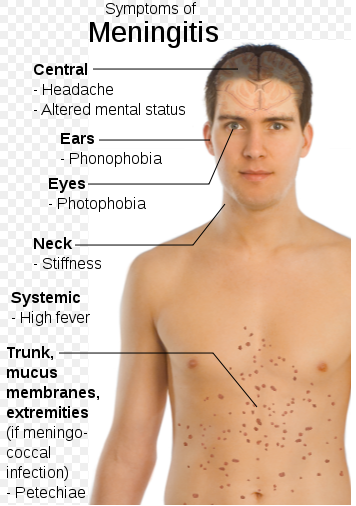Officials with Macon County Public Health (MCPH) in North Carolina have confirmed bacterial meningitis outbreak.

As of Feb. 27, two deaths have occurred in the past three weeks–one confirmed caused by Neisseria meningitidis and the second death suspected to be linked to Neisseria meningitidis is under investigation.
Prophylactic antibiotics have been provided to individuals in close contact with the infected individuals.
Meningococcal meningitis is a form of bacterial meningitis that is treated with antibiotics. Bacterial meningitis is an infection that causes inflammation of the brain and spinal cord membranes. It is spread by close contact with an infected individual. Most people recover from meningitis, however, serious complications, including death, can occur in as little as a few hours if left untreated.
Symptoms of bacterial meningitis may be severe and include sudden onset of fever, headache and stiff neck. Other symptoms may include nausea, vomiting, sensitivity to light and confusion or altered mental status.
Symptoms most commonly appear three to seven days after exposure but may present anywhere from two to 10 days after exposure. Symptoms may progress very rapidly.
Bacterial meningitis is spread through close contact with an infected individual, including kissing, sharing food and beverage, or breathing in bacteria spread by sneezing or coughing. College students are especially at risk due to close living environments.
It is treated by targeted antibiotics; the sooner antibiotic treatment is initiated the better.
The most effective prevention against bacterial meningitis is vaccination.


